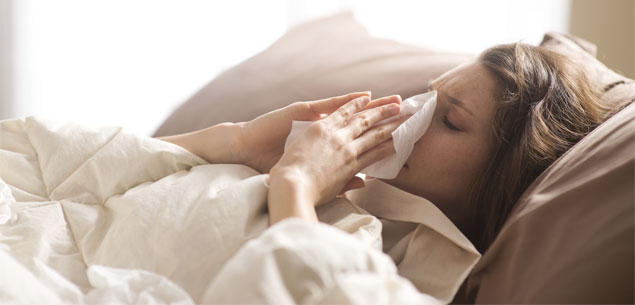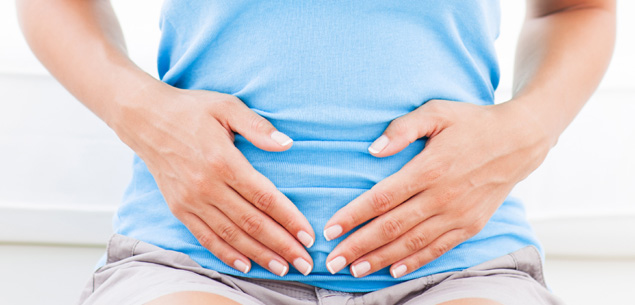Throughout my career I have come across a huge amount of confusion and misconception around the subject of hormones.
While we have come a long way since the 1930s – when in extreme cases women were accused of insanity and institutionalised for hormonal stress – there is still widespread misdiagnosis.
I have seen women prescribed everything from psychiatric medications to muscle relaxants for hormonal imbalances that could have been remedied with evidence-based natural therapies.
Women’s hormones change naturally throughout their lifetimes; consequently hormonal imbalances can affect us at any age, and are far more common than people realise. In the past 40 years, we have seen a dramatic rise in hormone related conditions – the age of puberty is dropping to as young as 10, endometriosis afflicts 10 per cent of women, premenstrual syndrome (PMS) affects almost a third of us, and uterine fibroids (benign tumours in the uterus) occur in one in four women aged 35-50.
There are multiple causes of hormone imbalance, but most cases are due to increased amounts of oestrogen in the body and not enough progesterone. This state of oestrogen dominance, which affects almost half of Western women aged over 35, is commonly triggered by stress, a low-fibre diet, obesity, lack of exercise, and overloading the liver with toxins such as alcohol. Consumption of non-organic animal products, environmental toxins, genetics and tumours can also bring it on.
Added to this, all women experience hormone decline with age. Between the ages of 35 and 50 – the time of pre-menopause and menopause – levels of progesterone reduce at more than twice the rate of oestrogen, creating natural oestrogen dominance.
There are many conditions associated with this oestrogen imbalance – such as fibrocystic breast disease, breast cancer, endometrial polyps, polycystic ovary syndrome, auto-immune disorders and low blood sugar problems.
But hormonal deficiencies can also manifest in health concerns women have long felt they simply have to ‘put up with’. In a teenager, a sign might be heavy periods, while in a woman in her late 30s it might be inability to lose weight, or perhaps irritability. A woman in her 50s might complain of low sex drive, while one in her 70s might complain of joint pain and high cholesterol. I have had patients suffering from all these conditions that we should supposedly ‘bear’, and I was able to explain – and manage – every issue by taking charge of each woman’s hormonal health.
Of course it is important to always be checked by a medical professional, as in some cases there are other underlying causes. However, it’s helpful to know the symptoms and signs of hormonal imbalance, and the options available to manage this.
Teens to mid 30s
Symptoms of hormone imbalance: From the first period up to the mid 30s, hormone imbalance can cause heavy periods, severe cramping, sore breasts, backaches, headaches, irritability and anxiety. Some women also grow hair on the chin, and develop facial acne. And there can be weight gain around the hips, thighs and stomach, which may seem impossible to lose.
Typically around this age, endometriosis – a painful build-up of the uterus’s endometrial lining that attaches to other organs – is diagnosed. In many cases, this is due to too much oestrogen.
Some women have trouble processing sugars. They may have ovarian cysts – often diagnosed as polycystic ovary syndrome, but also partially due to too much testosterone and not enough progesterone. Low progesterone can result in a woman having difficulty conceiving, or miscarriage.
Why you feel this way: Many symptoms may be due to progesterone deficiency, in which the calming, anti-pre-menstrual stress hormone is too low on days 19-21 of the menstrual cycle. The balancing hormone oestrogen may also be too high, causing oestrogen dominance.
My top tip on hormone management at this age: I suggest you avoid the oral contraceptive pill for management of hormonal imbalances. Synthetic hormones may increase the risk of high blood pressure, blood clots and stroke, and I often see side effects of weight gain, fatigue and low moods. Instead, consider bioidentical hormones or herbal medicines to balance hormones, and use barrier methods for birth control. Before having any hysterectomy (removal of the uterus) procedure for endometriosis, ensure you get your hormones tested!
What else can you do about it?
Get a saliva or ‘Dutch’ home test kit to check your hormone levels. A DUTCH kit is a dried urine test for comprehensive hormones that tests for levels of a broad spectrum of hormones: cortisol (can cause adrenal fatigue syndrome), the sleep hormone melatonin, all reproductive hormones, testosterone and metabolites. It is available from integrative health practitioners.
Apply bioidentical hormone therapy cream from the soy and Mexican yam plants to the inner arms and backs of knees daily for the last two weeks of the menstrual cycle.
Try a herbal formulation that includes vitex agnus-castus (chasteberry) and other progesterone-inducing herbs such as rehmannia, passion flower, wild yam, peony root and cramp bark.
Herbs that detoxify the liver and break down oestrogen, such as calcium D-glucarate, chrysin, milk thistle seed extract and chamomile extract may also help.
See a qualified professional for help with diet, exercise and stress management.
Mid 30s to 50

Hormonal imbalance issues can wreak havoc on your life but there are treatment options available.
Symptoms of hormone imbalance: At this age women can experience ‘perimenopause’ which means pre-menopause. Signs of this may be feeling irritable, anxious and depressed, and having trouble sleeping. You may also have abdominal weight gain, bloating, flushes, night sweats and joint pain.
Some women have menstrual irregularities, vaginal dryness, lower sex drive, memory fog, heart palpitations, nausea, urinary tract infections, the early stages of osteoporosis, and elevated cholesterol as a result of oestrogen depletion.
Why you feel this way: Your progesterone, oestrogen and testosterone hormones are starting to decline, which can prompt any or all of the above.
My top tip on hormone management at this age: Consider natural hormonal balancing before anti-depressant therapies, as often low moods and anxiety may be due to a drop in progesterone levels with perimenopause.
What else can you do about it?
Get a saliva or ‘Dutch’ home test kit to check your hormone levels. A DUTCH kit is a dried urine test for comprehensive hormones that tests for levels of a broad spectrum of hormones: cortisol (can cause adrenal fatigue syndrome), the sleep hormone melatonin, all reproductive hormones, testosterone and metabolites. It is available from integrative health practitioners.
Increase intake of foods rich in vitamin B6, including enriched cereals, fermented soy like miso soup and tofu, and nuts. Thyme, turmeric, and oregano support healthy progesterone levels.
Herbal supplementation such as chasteberry, black cohosh and Siberian ginseng promotes progesterone production.
Throw out any personal and household products that contain xenoestrogens – foreign oestrogen mimickers that can play havoc with our delicate hormonal balance. Avoid products with parabens especially for this reason.
Bioidentical hormone therapy cream from the soy and Mexican yam plants, applied to the inner arms and backs of knees, is highly recommended.
Maintain a healthy weight. Try mixed cardio and light weight-bearing activities along with a Paleo-style diet. Oestrogen is stimulated by excess fat, which in turn depletes progesterone.
From 50s-60
Symptoms of hormone imbalance: This is the time of menopause, when periods are typically absent for a minimum of 12 months.
Signs of hormone imbalance common to menopause are sleep difficulties, urinary problems (leakage, frequent and urgent desire to urinate), vaginal dryness, headaches, depression, anxiety, mood swings, memory fog, body aches, tinnitus, fungal infections, skin, eye and mouth dryness and fatigue.
Why you feel this way: During menopause, our ovaries stop producing eggs and the hormones oestrogen, progesterone and testosterone decline rapidly.
My top tip on hormone management at this age: Menopausal women often start to refrain from sexual relations with their partner due to pain with intercourse resulting from vaginal dryness. It is possible to keep relationship intimacy alive and well with the use of a natural plant-based cream applied intravaginally to restore moisture. Lower sex drive is also common at this time. This can be replenished with herbal therapies such as Siberian ginseng, tongkat ali, panax ginseng, epimedium sagittatum, maca, mucuna pruriens, tribulus terrestris, ashwagandha, damiana, and muira puama, which support healthy testosterone and stress-coping cortisol production.
What else can you do about it?
Get a saliva or ‘Dutch’ home test kit to check your hormone levels. A DUTCH kit is a dried urine test for comprehensive hormones that tests for levels of a broad spectrum of hormones: cortisol (can cause adrenal fatigue syndrome), the sleep hormone melatonin, all reproductive hormones, testosterone and metabolites. It is available from integrative health practitioners.
Consume fermented soy products daily, such as tofu, fermented Korean soybean paste, miso soup from paste, Japanese natto and tamari soy sauce, the Indian curry chagem pomba and Indonesian tempeh.
Bioidentical hormone therapy from the soy and Mexican yam plants is recommended to quickly reduce or completely eliminate hot flushes.
Have a yearly breast thermograph, which involves a trained nurse or technician taking a photo of your breasts with a special thermal sensitive camera. They are radiation-free and can detect vascular irregularities in your breast tissue prior to mammography, and are analysed by a thermography qualified doctor.
Maintain a healthy weight by reducing consumption of foods with empty carbohydrates, such as processed foods, white bread, pastries, pasta and sugar.
Try walking, swimming, cycling, yoga or Pilates three to four times weekly to reduce the stress hormone cortisol so that you don’t hold onto weight.
60 plus

Post menopausal issues can still be of concern for some women.
Symptoms of hormone imbalance: Women at this age are post-menopausal, so most have finished with the majority of menopausal symptoms. However, some women continue to have night sweats and hot flushes into their 80s. Vaginal dryness and bladder leakage is also an unpleasant reality. Some women also suffer from hip and wrist fractures.
Why you feel this way: We can still experience hormonal fluctuations in our later years. Some of the predisposing factors for prolonged hot flushing include a previous hysterectomy, a history of smoking, and high alcohol intake. Also, depression (low serotonin levels) or obesity may be factors.
The depleted oestrogen hormone can lead to an increased risk of osteoporosis (weakening of the bones), which causes fractures. This same depletion is responsible for an increased risk of heart disease, too.
My top tip on hormone management at this age: It is a myth that we must accept sore bodies, weight gain and fatigue as just a natural part of getting older. With hormone restoration we can feel more like our old selves again, with more energy, improved skin, less joint pain and stronger bones and hearts.
What else can you do about it?
Replenish hormones with a plant-based bioidentical hormone cream applied to the backs of knees or inner arms twice daily. It can also be applied intravaginally to restore moisture.
For ongoing hot flushes, consider a serotonin boosting supplement such as SAM-e or try acupuncture.
Ask your GP to test your vitamin D and calcium levels to ensure you have enough of these key nutrients to maintain strong bones. You can also ask to be referred for a bone density (DEXA) test to analyse your bone health.
Eat calcium-rich foods, such as deep green leafy vegetables, organic dairy and salmon.
Ensure that you have 10 minutes exposure to natural sunlight daily with sunglasses off to support healthy vitamin D levels to keep bones strong.
Choose regular weight-bearing exercise (walking, stair-climbing, using light weights) three to four times a week to keep bones strong.
Words by: Dr Kathleen Wills
Photos: Getty images


